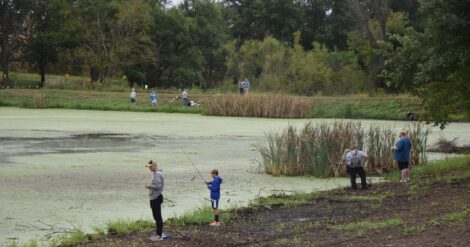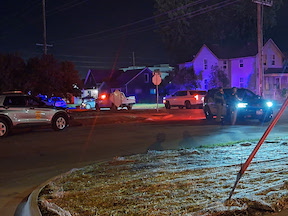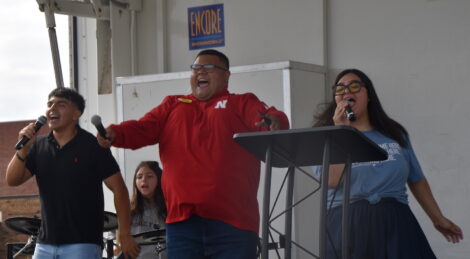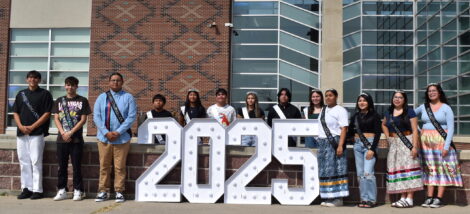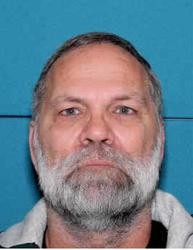Proposed geoengineering ban will have ‘no impact,’ says Marshalltown Aviation president

AP FILE PHOTO An aircraft crosses the vapor trails of another plane over Frankfurt, Germany, on April 19, 2018. Currently, the Iowa House is considering a bill that would ban geoengineering over the state's skies, but Marshalltown Aviation President and Co-Owner Steven Valbracht doubts that it would have any practical impact if enacted.
The effort by some Iowa legislators to ban geoengineering in Iowa skies might not make much of an actual difference.
Introduced by 23 Republican representatives and led by Rep. Jeff Shipley (R-Birmingham), House File 191 (HF191) was recommended for passage by the House Environmental Protection subcommittee, with the note that more research is needed. The proposed bill prohibits “intentional emission of air contaminants into the atmosphere with the express purpose of affecting temperature, weather or the intensity of sunlight.”
According to Rep. David Blom (R-Marshalltown), the bill is preventative. For example, he said such practices are occurring in North Dakota through the North Dakota Cloud Modification Project. Located in the western part of the state, five counties are participating in the program to enhance rain and reduce hail damage. Blom said the bill would prevent such programs or companies from popping up in Iowa, eliminating some concern.
Even though he is not assigned to HF191, he has spoken with Shipley about it and learned more details about the goals it intends to achieve.
“It’s hard to know if it will move forward,” Blom said. “It depends on what happens in Des Moines.”
During a committee hearing, attending Iowans expressed their concerns over the lines they see in the sky, otherwise known as contrails. They made claims of nanotechnology being found in the soil and of unvaccinated children being consistently ill due to aircraft spraying.
Contrails are the white lines trailing behind aircraft and are composed primarily of water. Various environmental factors, such as temperature, wind and barometric pressure determine how long the contrails remain in the sky.
Marshalltown Aviation President and Co-owner Stephen Valbracht said HF191 is not very applicable.
“This is cute,” he said. “This is not going to affect anybody making contrails.”
If the purpose is to affect contrails, Valbracht said it will not accomplish anything. The lines left behind jets or airliners do not contain anything that will affect the weather.
“This is not going to regulate airlines,” he said. “This is silly. If they want to regulate contrails, it’s written wrong. Nobody is doing [weather modification]. That’s the truth of it.”
Additionally, the state of Iowa has no jurisdiction over aircraft flying at those altitudes. According to the Iowa Department of Transportation, the state controls the airspace up to 400 feet above ground level. The federal government, through the Federal Aviation Administration, is the entity controlling the skies.
“They will never be able to regulate contrails in a million years,” Valbracht said. “It’s pure insanity. I don’t know if Iowa could stop airliners from flying over the state. That’s a crazy proposition.”
If HF191 is trying to ban chemtrails, Valbracht also feels such a move is foolish. While he has enjoyed the conspiracy theories surrounding chemtrails — erroneously believed to be contrails — there is a lot of fabrication.
“It is just moisture,” he said. “A jet aircraft does not release any chemical other than pure moisture. It’s just silly.”
When asked if the passage of HF191 would help ease the fears of people concerned about chemtrails, Blom said everyone will have to reach their own assessment.
“Multiple people are concerned about contrails, and others are not concerned,” he said. “We need to find out what the appropriate level of chemicals is.”
Upon reading the proposed legislation, Valbracht said it appears it could apply to cloud seeding, a weather modification practice of introducing elements, such as silver iodide particles, into clouds to make it rain. There are nine states in which cloud seeding occurs, and the closest to Iowa are North Dakota and Colorado.
“That is the only thing it could possibly impact, and that has not been done since before my time,” Valbracht said. “They use them in deserts. I have never seen a cloud seeding airplane in Iowa. This bill appears to be cloud seeding prevention, which will have no impact on contrails in Iowa.”
Blom said there should be continued debate on the lines in the sky.
“There is room for multiple perspectives and debates on environmental protection,” he said. “I will listen to people. I definitely know there have been spirited debates and a lot of public interest.”
Contact Lana Bradstream at 641-753-6611 ext. 210 or lbradstream@timesrepublican.com.

